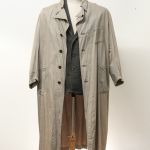
26 July – 31 August
After 1945, Ernst Lothar and Oscar Fritz Schuh dominated the drama department.

26 July – 31 August
After the regular TV programme started operating in Austria on six days a week starting at 8 pm as of January 1957, ORF decided in June 1958 for the first time to broadcast Festival events on television as well.
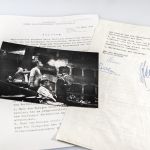
27 July – 31 August
The Festival’s Board of Directors had already resolved as early as December 1954 to fill the gap left by Furtwängler’s death and engage Herbert von Karajan. However, he cancelled his engagement in 1955.
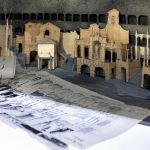
21 July – 30 August
The opera schedule in the anniversary year of 1956 was dedicated wholly to the genius loci Mozart: four revivals – including Don Giovanni – the takeover of Idomeneo from the Mozart Week and also a new production of Le nozze di Figaro formed a veritable show parade of the Mozart repertoire.
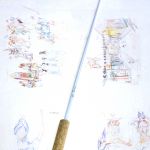
24 July – 30 August
Both the Salzburg Festival and the Vienna State Opera planned to include Don Giovanni and Fidelio in their 1955 schedules. Karl Böhm, director of the Vienna State Opera, threatened to stay away from the Festival should the schedules be the same.
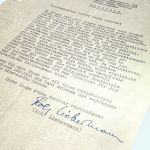
25 July – 30 August
As of 1954, Gottfried von Einem, as member of the arts council, was again chosen to make suggestions for the Salzburg Festival. He had already contrived to include the world première of Rolf Liebermann’s Penelope for 1954, whereupon Wilhelm Furtwängler expressed his displeasure, and the dispute flared up anew about programme planning and the renewal movement promoted by the team of von Einem/Schuh.
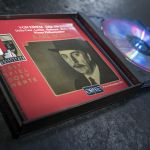
26 July – 31 August
After the uproar about the conferment of Austrian citizenship to Bertolt Brecht and the resulting expulsion of Gottfried von Einem from the Festival’s Board of Directors – he had supported Brecht until the very end – the composer was to be rehabilitated.

26 July – 31 August
The musical highlight of the 1952 Festival was the world première of Strauss’s opera Die Liebe der Danae on 14 August – eight years after the momentous dress rehearsal of 1944 – under Clemens Krauss.

27 July – 31 August
The year 1951 is noted as one of political scandal in the annals of the Festival. In the run-up to the first performance of Alban Berg’s Wozzeck at the Salzburg Festival, a politically motivated campaign was being organized against the opera, which caused ticket sales to slump.
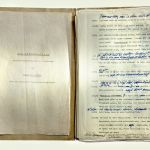
27 July – 31 August
Ernst Lothar, who as Theater & Music Officer exercised a major influence on the Salzburg Festival from summer 1946 on, resigned as cultural officer at the end of 1947. In 1948, he returned to the Salzburg Festival as member of the Board of Directors and endeavoured – with varying success – to ring in a new era for straight drama.
27 July – 31 August
The Festival’s Board of Directors had already resolved as early as December 1954 to fill the gap left by Furtwängler’s death and engage Herbert von Karajan. However, he cancelled his engagement in 1955.
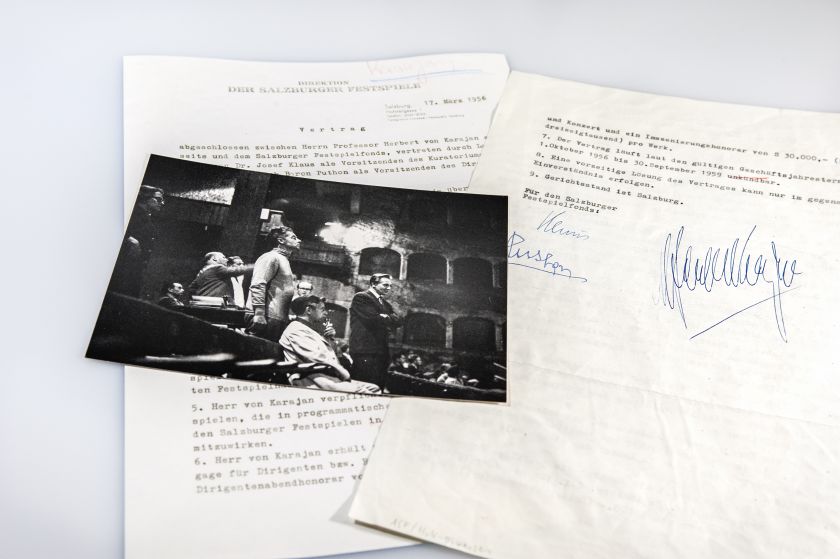
In May of the same year, Karajan became Artistic Director and chief conductor of the Berlin Philharmonic, in September 1956 he took over as director of the Vienna State Opera.
During the 1956 Mozart Week, Karajan met Festival President Puthon for a talk about his association with the Salzburg Festival and submitted his suggestions for programme planning and his demands. The contract dated 17 March was delivered to Karajan on 19 March. A press release followed on 21 March 1956 stating that Karajan would take over the artistic direction of the Salzburg Festival from 1957 to 1959. Beethoven’s Fidelio at the 1957 Festival saw Karajan for the first time in his dual function – required as condition – as conductor and stage director in an opera at the Salzburg Festival.
